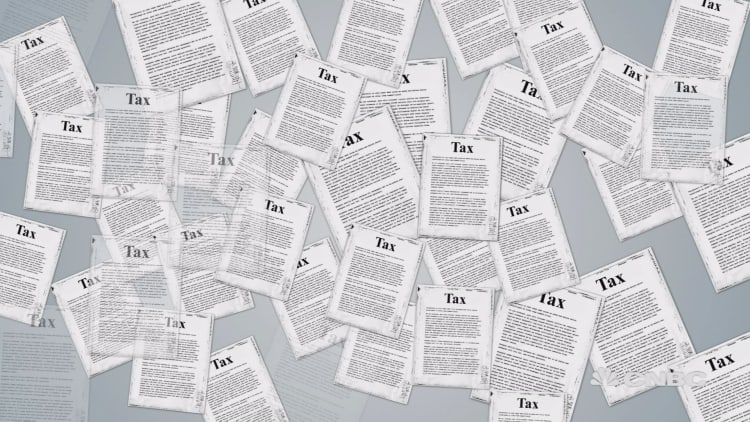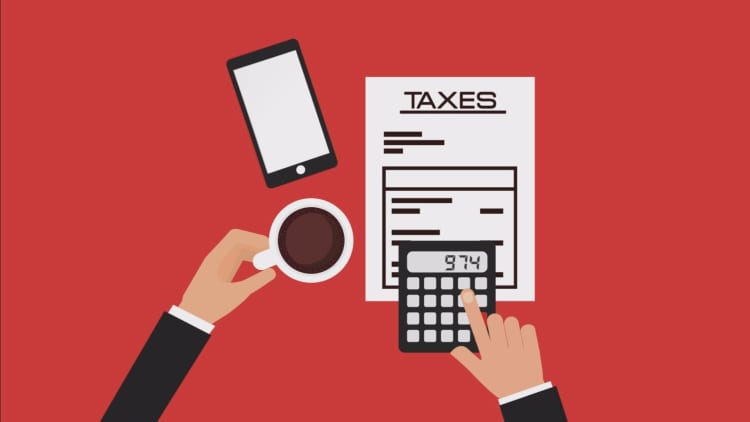
With less than two weeks until taxes are due, there's a good chance that some procrastinators haven't filed their return simply because they owe money to Uncle Sam.
If you're among those taxpayers and know with certainty that there is zero chance of coming up with the money by the time it's due — April 17 this year — it's important that you do not become immobilized.
"People get afraid and then don't file their return," said Ed Slott, a certified public accountant and founder of Ed Slott & Co. in Rockville Centre, New York. "That's a big mistake."
The IRS expects 155 million tax returns to be filed this year. Last year, the agency issued 111.9 million refunds worth a collective $324 billion. The average amount of refund per taxpayer was $2,895.

For those who owe, the IRS imposes a steep penalty if they don't file their return: 5 percent of the unpaid balance for each month it's late, up to a maximum of 25 percent of the amount due.
So if you owe, say, $1,000 and do not file, that penalty alone could reach $250 after five months of not filing your return.
"Even if you can't pay anything, it makes sense to file on time to avoid these costs," said certified financial planner Misty Lynch, a financial consultant at John Hancock in Boston.
| Refund data | 2016 | 2017 |
|---|---|---|
| Total returns received | 152.5 million | 152.2 million |
| Refunds issued | 111.1 million | 111.9 million |
| Total refund amount | $317.6 billion | $324 billion |
| Average refund amount | $2,860 | $2,895 |
Source: Source: The Internal Revenue Service
By comparison, if you file your return even if you cannot pay the full amount due, the penalty is far less: Generally 0.5 percent per month of your unpaid taxes. After five months, assuming you had paid none of the hypothetical $1,000 due, you would have accrued 2.5 percent in interest, or $25.
And if you can put any amount toward the bill by April 17, the penalty only applies to the remaining balance.
"File and pay what you can," Slott said. "The IRS will send a bill for the rest."
Also be aware that requesting a six-month extension generally does nothing to delay the failure-to-pay penalties from accruing; only the failure-to-file charges are affected.
"It's only an extension to file your return, not to pay what you owe," Slott said. "If it were an extension to pay, everyone would do it."

Of course, at some point the IRS begins to lose patience. If repeated efforts to collect taxes due don't work, the agency could turn to other methods to get what you owe, including freezing your bank account or garnishing your wages.
This is why it can make sense to work with the IRS in advance if you know you will struggle to pay your bill in a timely fashion. The agency allows taxpayers to apply for a payment plan.
"These are subject to approval, so plan ahead and file on time to improve your [approval] chances," Lynch said.
When the IRS determines what matters most in your budget, you can bet that taxes will outrank keeping your most prized possessions or paying other creditors.Misty LynchFinancial consultant at John Hancock
She also said that while there are fees associated with applying for a payment plan, the cost might be worth the extra time you'd get to pay your bill. Depending on the length and terms of your plan, along with your income, the fee to set up the plan could range from zero to $149.
The IRS also has a program that helps settle your tax debt for less than what you owe. Lynch said, however, the process is extensive and the IRS will take a deep dive into your finances to make sure you don't have the means to pay the full amount.
"When the IRS determines what matters most in your budget, you can bet that taxes will outrank keeping your most prized possessions or paying other creditors," Lynch said.
This story is part of CNBC's Tax Week coverage as the filing season wraps up on April 17. Stay tuned for more stories on tax tips and savings opportunities.
More from Personal Finance:
If you use your 529 for this, you may get a tax surprise
Got crypto? Here's how to avoid an audit from the IRS
How to get your taxes done for free






